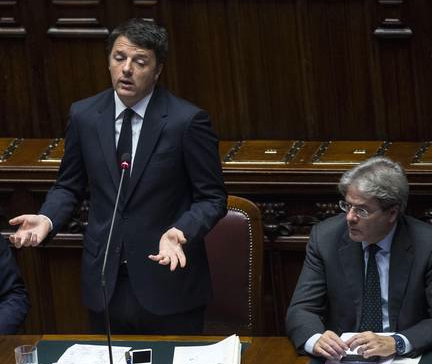By Sami Berriwen.
16 December 2015:
Why sometimes doing the right thing can lead to dire consequences, and what this means for United . . .[restrict]Nations policy on Libya.
In a press conference on Friday, the delegates from both rival parliaments in Libya announced the 16th of December as a final date for signing the UN-sponsored political framework that is supposed to put an end to eighteen months of civil war.
Hafter had declared a military campaign in May last year to root out Islamists in the city of Benghazi and beyond. Some key challenges endure despite the good news. The rival camps still disagree on which groups will be categorized as terrorists.
The role of Haftar in the upcoming phase constitutes a major obstacle. The Government of National Accord – the fruit of the political deal – is planned to be seated in the capital Tripoli. Yet no concrete steps have been taken so far to ensure that it will manage to operate in a safe environment. ‘Who will protect the government?’ Is a fundamental question.
On November 15 in 2013, former rebels from the city of Misrata opened fire on a protest by a group of angry Tripoli residents calling for disbanding all armed groups, leaving more than 30 people dead. This led to tensions between the former rebels from Tripoli and Misrata.
Those who will secure the Government of National Accord might use their task to intimidate the cabinet and enforce certain decisions. Tripoli had witnessed similar incidents in the past. Securing the government will likely become the big prize for these armed groups and this can escalate into an armed confrontation over who has the advantage of protecting the government’s headquarters.
Embarking on counter-terrorism military actions and deterring the flow of illicit migrants has to be done through formal resolutions from the United Nations Security Council based upon explicit call from the Libyan government.
Therefore, addressing all these issues require the collaboration of the prime minister. Some pragmatic figures within the Jihadi mainstream are not yet ready to endorse a government that has good ties with the west and risk losing their supporters. Such anxiety and mistrust might be exploited by Islamic State affiliates to persuade defectors from other Islamist currents.
The way those hardline Islamists who distance themselves from both moderates and Islamic State reacts to the government’s future decisions will be indispensable to Libya’s long-term stability. The last words of the Libyan resistant, Omar El-Mokhtar, before he was hanged by the Italian occupiers 84 years ago, were “We do not
surrender. We either win or die.” His highly-respected reputation of being the warrior who refused to make any deal with the Italian occupation show how compromise is equal to shame for some of the nomad tribes in eastern Libya.
A government that is widely considered as foreign-imposed will lack the legitimacy in the eyes of many Libyans and this would weaken its ability to govern. Ironically, Lebanon, which followed a pragmatic approach and decided not to get involved in the war has fragmented and descended into anarchy as part of its population perceived the government as an agent of the west.
Another example comes from the ill-fated Egyptian president Anwar Sadat who signed the ‘Camp David’ peace treaty with Israel in 1978. Although, Sadat rescued his people from an inevitable loss and did the right thing, the accord sparked a series of internal and regional condemnations and despise.
Jean-Marie Guéhenno, President of International Crisis Group, wrote recently on his twitter account that “United Nations must resist pressure from Western countries to hurry deal in Libya so that “legitimate” Libyan government asks them to bomb the Islamic State.” Jean-Marie later wrote “Will reinforce perception among many Libyans of foreign-imposed deal”.
European leaders want the formation of unity government to address these challenges at any price. The European Council on Foreign Relations (Think Tank) concluded from the recent European Union’s Global Strategy Review that when it comes to the new EU’s neighborhood policy, “Realism is in; idealism is out.”
The economic and security deterioration in Libya, in addition to the challenges faced by Europe, should foster the endeavours to reach a political agreement but this must not be done at the expense of Libya’s long-term stability.
Learning the culture of power-sharing and letting the rival parties share and address their concerns with each other is as vital as signing the agreement. Without true dialogue and bottom-up reconciliation, we risk of having another weak government that lack any real support among the Libyans, total state collapse, and competing militias fighting over power and oil wealth.
Sami Berriwen is a Libyan political analyst and commentator who worked as Senior National Security Adviser for foreign media affairs at the National Transitional Council during the 2011 revolution.
Opinion and Op-Ed articles do not necessarily reflect the views of the Libya Herald [/restrict]






